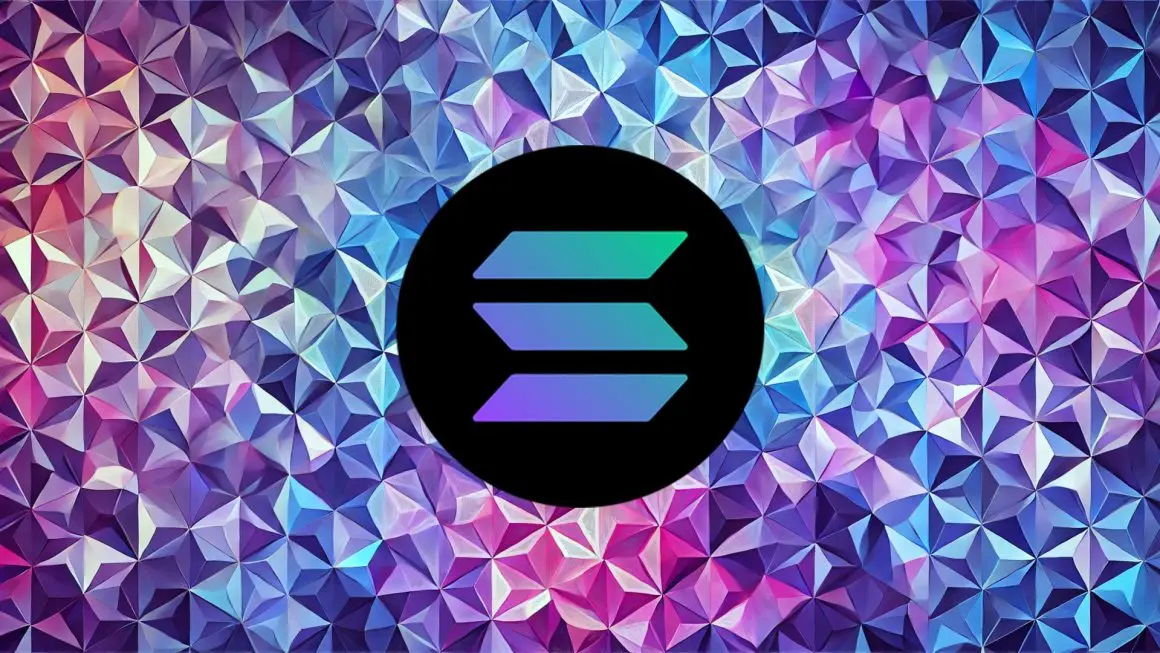Solana is known for its high-performance blockchain, designed to process thousands of transactions per second, and is increasingly popular in decentralized finance (DeFi), non-fungible tokens (NFTs), and other decentralized applications (DApps). But for Muslims, the key question is: Is using Solana permissible under Islamic law?
This post provides an in-depth examination of Solana’s use cases and how they align with Shariah finance principles, including riba (interest), gharar (uncertainty), and maysir (gambling). We will also reference the views of prominent Islamic scholars to clarify whether engaging with Solana is halal or haram. Insha Allah, Solana is halal when used properly, but certain activities on the platform should be avoided to remain compliant with Shariah.
1. Understanding Solana’s Functionality
Solana is a high-speed blockchain that enables the development of decentralized applications (DApps) and smart contracts. The platform uses a hybrid consensus mechanism combining Proof of Stake (PoS) and Proof of History (PoH) to validate transactions quickly and efficiently. The native token, SOL, serves multiple purposes, such as paying for transaction fees, staking, and participating in decentralized governance.
The technology behind Solana is not inherently tied to interest-based systems or gambling, making it neutral from an Islamic perspective. However, as with other cryptocurrencies, how the platform and token are used is essential in determining whether they are halal or haram.
2. Riba (Interest) and Staking in Solana
Riba, the practice of charging or receiving interest, is strictly prohibited in Islamic finance. Solana’s Proof of Stake system allows users to stake SOL tokens to help secure the network and earn rewards based on their contributions. These staking rewards are not interest-based, as they depend on the validator’s performance and the overall contribution to the network. Therefore, staking SOL is halal as it does not involve guaranteed returns, which would constitute riba.
However, Muslims must be cautious when participating in DeFi applications built on Solana. Some of these platforms offer interest-bearing loans, which would be haram under Shariah law. If a DeFi platform involves lending SOL or other tokens for interest, this would violate the prohibition on riba and should be avoided. Staking, however, remains permissible as long as it does not involve interest-based lending.
3. Gharar (Uncertainty) and Volatility in Solana
In Islamic finance, gharar refers to excessive uncertainty or ambiguity in transactions. Solana’s smart contracts are transparent and deterministic, meaning the terms are clear, and there is no room for ambiguity once a contract is executed. This helps reduce gharar in financial dealings on the platform.
However, cryptocurrencies, including SOL, are known for their price volatility. While price fluctuations introduce some uncertainty, this alone does not make Solana haram. The issue arises when speculative trading becomes the primary motive, as this aligns more closely with gambling (maysir), which is prohibited. Spot trading of SOL, where assets are exchanged immediately, is generally permissible, provided it’s done for legitimate purposes like securing the network or participating in decentralized applications.
Muslims should be careful about high-risk speculative trading strategies, such as leveraged trading or derivatives, as these involve excessive risk and uncertainty, falling under the category of gharar and maysir, and are therefore haram. Avoiding such speculative activities ensures compliance with Shariah principles.
4. Maysir (Gambling) and Speculative Practices
Islam prohibits maysir, which refers to gambling or highly speculative ventures where the outcome is left to chance. While Solana as a blockchain does not promote gambling, some financial activities conducted on the platform may closely resemble maysir.
For example:
- Leveraged trading: Borrowing money to trade large amounts of SOL is highly speculative and risky, often leading to substantial losses. This resembles gambling and is haram.
- Futures contracts and derivatives: These financial products allow traders to bet on the future price of SOL without owning the asset, which transforms the activity into a form of speculative gambling. These are haram because they involve high uncertainty and are not based on real value creation.
In contrast, using SOL for productive purposes—such as paying transaction fees, staking for network security, or participating in Shariah-compliant decentralized applications—is halal, as it contributes to the blockchain’s ecosystem without engaging in speculative or interest-based activities.
5. Islamic Scholars’ Opinions on Solana
Several Islamic scholars have weighed in on the permissibility of blockchain platforms like Solana. Mufti Faraz Adam, a recognized authority in Islamic finance, and Ibrahim Khan of Islamic Finance Guru have stated that blockchain technology and its applications can be halal when used appropriately. They emphasize that the key concern is the use case: as long as an application or platform does not involve riba, maysir, or excessive gharar, it can be permissible.
Additionally, Practical Islamic Finance, a well-regarded platform providing guidance on halal investments, has rated Solana as halal, based on its potential for productive use, its staking system, and the transparency of its smart contracts. They note that staking SOL to secure the network is permissible, but Muslims should avoid DeFi applications that involve interest-bearing loans or speculative trading.
Mufti Muhammad Abu-Bakar has also ruled in favor of cryptocurrencies like Bitcoin and Ethereum when used for valid purposes like payments or participating in decentralized ecosystems. The logic applied to Ethereum can similarly apply to Solana, as both platforms offer decentralized services that are neutral from a Shariah perspective. As long as users avoid engaging in speculative activities, Solana can be used in a halal manner.
6. NFTs and Other Use Cases on Solana
Solana is also home to a thriving NFT (Non-Fungible Token) ecosystem, where digital assets representing unique items like art, music, and collectibles are traded. NFTs are not inherently haram, as they represent ownership over a specific asset. However, Muslims must ensure that the underlying asset is halal. NFTs tied to prohibited items, such as alcohol or gambling-related content, would make the transaction haram.
Beyond NFTs, Solana also supports a variety of decentralized applications, including Decentralized Autonomous Organizations (DAOs), marketplaces, and DeFi platforms. As long as these applications adhere to ethical guidelines and avoid prohibited activities, they can offer Shariah-compliant financial products.
Conclusion: Is Solana Halal or Haram?
Insha Allah, Solana is halal when used within the boundaries of Shariah principles. The platform itself, along with its native token SOL, is neutral from an Islamic perspective. Staking SOL, using it for transaction fees, and participating in decentralized applications are permissible activities that do not violate Islamic law.
However, Muslims should be mindful to avoid engaging in activities like:
- Leverage trading and derivatives, which resemble gambling and involve excessive risk.
- Interest-bearing DeFi platforms, which violate the prohibition on riba.
Ultimately, the permissibility of Solana depends on how it is used. As long as Muslims focus on productive, ethical activities and avoid speculative and interest-based products, they can engage with Solana confidently within the framework of Shariah compliance.


